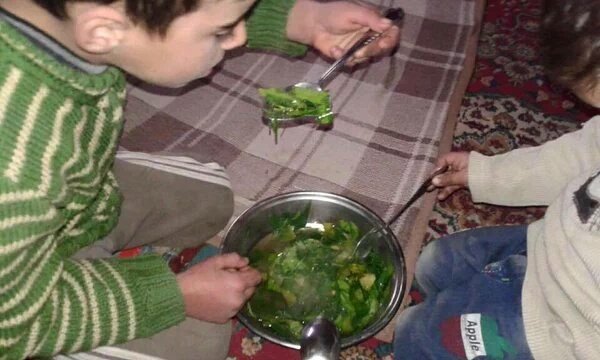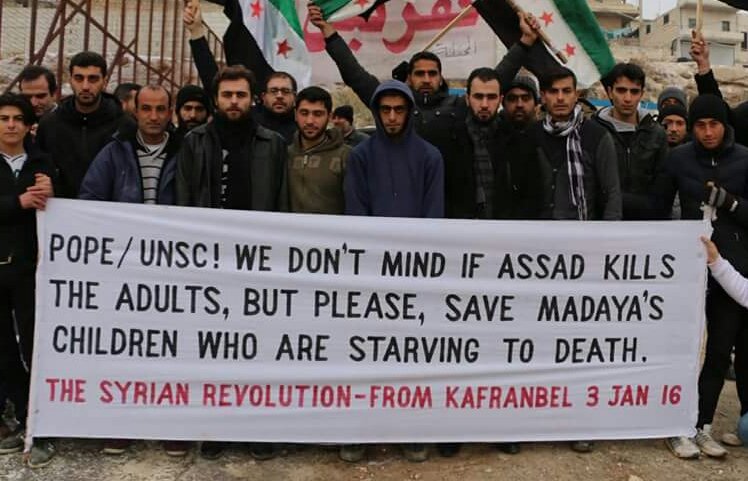Any kind of peace accords and efforts to deal with Iraq, Lebanon, Syria and Afghanistan due to broken relationships in the Middle East is not for the most part impossible until at least late 2017. Estimations of terror matrix trends rising is impossible to predict but it is for sure likely in the region.
While the U.S. State Department under John Kerry and the Obama White House are still working to support the Iranian nuclear deal, the real result is Iran’s growing influence and power in the region. Saudi Arabia and other Gulf States have had enough and are taking aggressive action. Finally…
Saudi Arabia paid the larger part of the expenses to Pakistan to acquire nuclear weapons with the option at obtaining a minimum of 10. Further, the U.S. maintains the U.S. Navy Fifth Fleet I Bahrain, which is a Shiite majority. The Fifth fleet is designed to operate and maintain the Persian Gulf, the Red Sea, the Arabian Sea and the Indian Ocean.

Bahrain has been a worry for the U.S. Navy going back to at least 2011 over Shiite uprisings which is still a major headache after the recent and escalating conflicted relations between Saudi Arabia and Iran.
New Saudi-Iran crisis threatens wider escalation
Reuters: The last time Saudi Arabia broke off ties with Iran, after its embassy in Tehran was stormed by protesters in 1988, it took a swing in the regional power balance in the form of Saddam Hussein’s 1990 invasion of Kuwait to heal the rift.
It is hard to see how any lesser development could resolve the region’s most bitter rivalry, which has underpinned wars and political tussles across the Middle East as Riyadh and Tehran backed opposing sides.

Riyadh’s expulsion of Iran’s envoy after another storming of its Tehran embassy, this time in response to the Saudi execution of Shi’ite Muslim cleric Nimr al-Nimr, raised the heat again, making the region’s underlying conflict even harder to resolve.
At the heart of the new crisis is Saudi Arabia’s growing willingness to confront Iran and its allies militarily since King Salman took power a year ago, say diplomats, choosing with his son, Deputy Crown Prince Mohammed bin Salman, to abandon years of backroom politics.
Last year, Riyadh began a war in Yemen to stop an Iran-allied militia seizing power in its southern neighbor and boosted support to Syrian rebels against Tehran’s ally President Bashar al-Assad. Its execution of Nimr, while mainly driven by domestic politics, was also part of that open confrontation with Iran, according to political analysts.
The interventions followed years of Riyadh complaining about what it regarded as unchecked Iranian aggression in the region. It has pointed to Iran’s support for Shi’ite militias and accused the country of smuggling arms to groups in Gulf countries – which Iran denies.
“We will not allow Iran to destabilize our region. We will not allow Iran to do harm to our citizens or those of our allies and so we will react,” Saudi Foreign Minister Adel al-Jubeir told Reuters on Monday, signaling Riyadh would not back down.

The Saudi decisions in Syria and Yemen were also partly a response to Iran’s nuclear deal with world powers, which lifted sanctions on Tehran, theoretically giving it more money and political room to pursue its regional activities.
The new crisis has had the effect of hardening a wider confrontation between the loose-knit coalitions of allies each can call upon in the region; some of Riyadh’s allies also cut diplomatic ties with Tehran after the embassy attack, while Iran’s warned of repercussions.
That chain reaction may now complicate complex political talks over the formation of a government in Lebanon, efforts to bring Syria’s warring parties to talks, stalled negotiations to end Yemen’s civil war and Riyadh’s rapprochement with Baghdad.

SIMMERING MISTRUST
Until the 1960s and 70s, Saudi Arabia and Iran were uneasy allies regarded as the “twin pillars” of Washington’s strategy to curb Soviet influence in the Gulf. Sectarianism was muted.
But rich on its new oil wealth, Saudi Arabia began to propagate its rigid Salafi interpretation of Sunni Islam which regards Shi’ism as heretical, in mosques around the region. And, after its 1979 revolution, Iran adopted – and exported – the doctrine of Velayat-e Faqih, which says ultimate temporal power among Shi’ites should reside with its own supreme leader.
That growing ideological divide set up a simmering mistrust that was soon matched by a geopolitical rivalry that has driven their fractious relations for the subsequent 37 years.
After Iran’s 1980-88 war with Iraq, when Saddam invaded, it developed a strategy of “forward defense”, seeking to use ties with Arab Shi’ites to build militias and political parties that could stop new enemies emerging and give it deterrent capability through proxy forces.
Riyadh regarded Tehran’s cultivation of Shi’ite groups with intense suspicion, fearing it would foment revolution in Saudi-allied states and destabilize the region.
It broke ties in 1988 when a diplomat died in the storming of its Tehran embassy following tensions over the death of hundreds of Iranian pilgrims in clashes with Saudi police during the haj. But when Saddam invaded Kuwait, Tehran and Riyadh set aside their hostility to make common cause against a shared enemy.
The toppling of Saddam in 2003 upturned the regional power balance, however, as Iran used its ties to the country’s large Shi’ite community to gain sway in Baghdad, pitting Riyadh and Tehran more openly against each other – a pattern repeated in Yemen and Syria after the “Arab Spring” uprisings.
Meanwhile, Iraq’s civil war had poured fuel on growing sectarian tensions as al Qaeda, which follows an extreme form of Salafism, sent suicide bombers against Shi’ite civilians, prompting murderous retaliation from Iran-linked militias.
FURTHER ESCALATION
Now there is some scope for further escalation, both in the various Middle East theaters where Iran and Saudi Arabia back opposing forces, and diplomatically as Riyadh taps Arab and Muslim channels to try to isolate Tehran, according to analysts.

“Since 1979 the two countries have fought numerous proxy conflicts throughout the Middle East and often exchange threats and insults. But they’ve stopped short of direct conflict and eventually agreed to a cold reconciliation,” said Karim Sadjadpour, senior associate of the Carnegie Endowment for International Peace’s Middle East program.
But he said that Iran might seek to stoke unrest among Saudi Arabia and Bahrain’s Shi’ite communities.
Renewed protests among Saudi and Bahraini Shi’ites since the execution of Nimr, along with the bombing of two Sunni mosques in Iraq, may be regarded by Riyadh as evidence of Iranian incitement.
Riyadh has itself pushed allies to cut ties with Iran and pressed Muslim bodies like the Organisation of Islamic Cooperation to condemn the storming of the embassy. Theoretically, it could also ramp up support for Syrian rebel groups.
All-out conflict is something that even hawks in Saudi Arabia and Iran would likely try to avoid. However, the new escalation between the region’s main enemies shows how events can sometimes pre-empt strategic plans.
After the execution of Nimr, Iran’s Revolutionary Guard elite military force said a “harsh revenge” would strike Saudi’s ruling Al-Saud family in the near future.
“The Revolutionary Guard is part of the Iranian government and their threats should be taken seriously because they control militia in Lebanon, Syria, Iraq and Yemen and I would not be surprised if they use it to act against the Saudis,” said Abdulaziz al-Sager, head of Jeddah-based Gulf Research Centre.
****
Where do the rest of the countries stand?
AP- SAUDI ARABIA — The kingdom severed ties to Iran after attacks on two of its diplomatic posts following its execution of a Shiite cleric last weekend; it also later cancelled all flights between the two nations.
IRAN — Since the attack on the diplomatic posts, Iran says it has made arrests and has criticized the violent protesters. However on Tuesday, President Hassan Rouhani took a slightly harder line, saying Saudi Arabia’s move to sever ties with his country couldn’t “cover its crime” of executing Shiite cleric Nimr al-Nimr.
COUNTRIES BACKING SAUDI ARABIA:
BAHRAIN — The tiny, Shiite-majority island kingdom off the Saudi coast, which long has relied on Saudi Arabia for support of its Sunni rulers, was the first to cut ties with Iran. Bahraini officials repeatedly have accused Iran of training militants and attempting to smuggle arms into the country, which hosts the U.S. Navy’s 5th Fleet.
SUDAN — The African nation cut its diplomatic ties to Iran and gave Iranian diplomats two weeks to leave the country. Sudan once tilted toward Iran, but has been looking to Saudi Arabia for aid since the secession of oil-rich South Sudan in 2011.
UNITED ARAB EMIRATES — The oil-rich country of seven emirates says it will reduce the number of diplomats in Iran, recall its ambassador and focus only on business relations. While backing Saudi Arabia, it may have chosen to reduce — rather than completely sever ties — because of a long trading history with Iran.
KUWAIT — The oil-rich country is recalling of its ambassador from Tehran, but it isn’t immediately clear how Kuwaiti-Iranian diplomatic ties will be affected. Tiny Kuwait is home to both Shiites and Sunnis living in peace and has the most free-wheeling political system among all Gulf nations.
JORDAN: Overwhelmingly Sunni Jordan is a close ally of Saudi Arabia in the region and a beneficiary of Gulf aid. Jordan’s government spokesman, Mohammed Momani, has condemned the attack on the Saudi Embassy in Iran.
THE MEDIATOR:
OMAN — The sultanate has long historical ties to Iran and served as the base for secret talks between Iranian and U.S. officials that jump-started the deal reached between Iran and world powers over the Islamic Republic’s contested nuclear program.
THOSE BACKING IRAN:
LEBANESE HEZBOLLAH MOVEMENT — Hezbollah was founded in 1982 with the help of Iran’s Revolutionary Guards after Israel invaded Lebanon. The group is one the main Iran-backed factions in the region.
SYRIA’S EMBATTLED PRESIDENT BASHAR ASSAD — Iran has been one of the biggest supporters of Syria since the 1980s and has stood by Assad’s government in his country’s grinding civil war. Saudi Arabia has been one of the biggest benefactors of those trying to overthrow him.
IRAQ’S SHIITE-LED GOVERNMENT IN BAGHDAD — Even as Iraq is embroiled in a major war against the militant Islamic State group, al-Nimr’s execution sparked outrage among the country’s majority Shiites who have taken to the streets in Baghdad and the south, calling for an end to ties with Saudi Arabia. The Shiite-led government has warmed Riyadh that such executions “would lead to nothing but more destruction.”
OTHER REGIONAL ACTORS:
ISRAEL — Israel considers Iran to be its greatest regional threat because of its nuclear program, its arsenal of long-range missiles, its support of anti-Israel militant groups and its repeated threats to destroy it. While Israel has no direct ties to Saudi Arabia either, the countries have come closer because of a shared concern over Iran’s growing influence.
THE PALESTINIANS — The Palestinian Authority issued a statement after the execution of al-Nimr saying that it stands alongside the Saudis in their fight against “terrorism.” The Saudis are the largest donor to the Palestinian Authority in the Arab world, providing them some $200 million annually. The PA, and the Fatah faction that leads it, has had a strained relationship with Iran because of its support of its rival, Hamas.
YEMEN — The Arab world’s poorest country is torn by a civil war pitting its internationally recognized government, backed by a Saudi-led coalition, against Shiite rebels known as Houthis, who are supported by Iran.
THOSE URGING CAUTION:
THE UNITED NATIONS — U.N. Secretary-General Ban Ki-moon has urged Saudi Arabia and Iran to support peace efforts in Syria and Yemen and avoid escalating tensions.
EUROPEAN UNION: The 28-nation bloc, which opposes the death penalty, criticized Saudi Arabia’s mass executions and said al-Nimr’s case undermined freedom of expression and basic political rights in the kingdom. Since tensions flared between Iran and Saudi Arabia, the EU foreign policy chief has had phone contact with both sides, fearing an escalation would further destabilize the whole region.
THE UNITED STATES — The White House has urged Saudi Arabia and Iran to not let their dispute derail efforts to end the Syrian civil war, while President Barack Obama’s administration also hopes to see the Iranian nuclear deal through.
UNITED KINGDOM — Britain and Iran reopened their respective embassies in 2015, four years after hard-line protesters stormed the British embassy in Tehran. Saudi Arabia is a key diplomatic and economic ally of Britain, though Middle East Minister Tobias Ellwood said Britain told the kingdom about its “disappointment at the mass executions.”
TURKEY — Turkey has urged both Saudi Arabia and Iran to ease tensions, saying the Middle East region is “already like a powder keg” and cannot withstand a new crisis.
GERMANY — Berlin has called on Saudi Arabia and Iran to work to mend their diplomatic ties, while condemning both the mass executions in the kingdom and the storming of the Saudi missions in Iran.
RUSSIA — State news agency RIA Novosti quoted an unnamed senior diplomat as saying Moscow is ready to act as a mediator between Iran and Saudi Arabia. It’s unclear whether Russian officials have made a formal offer to work with the two nations.








